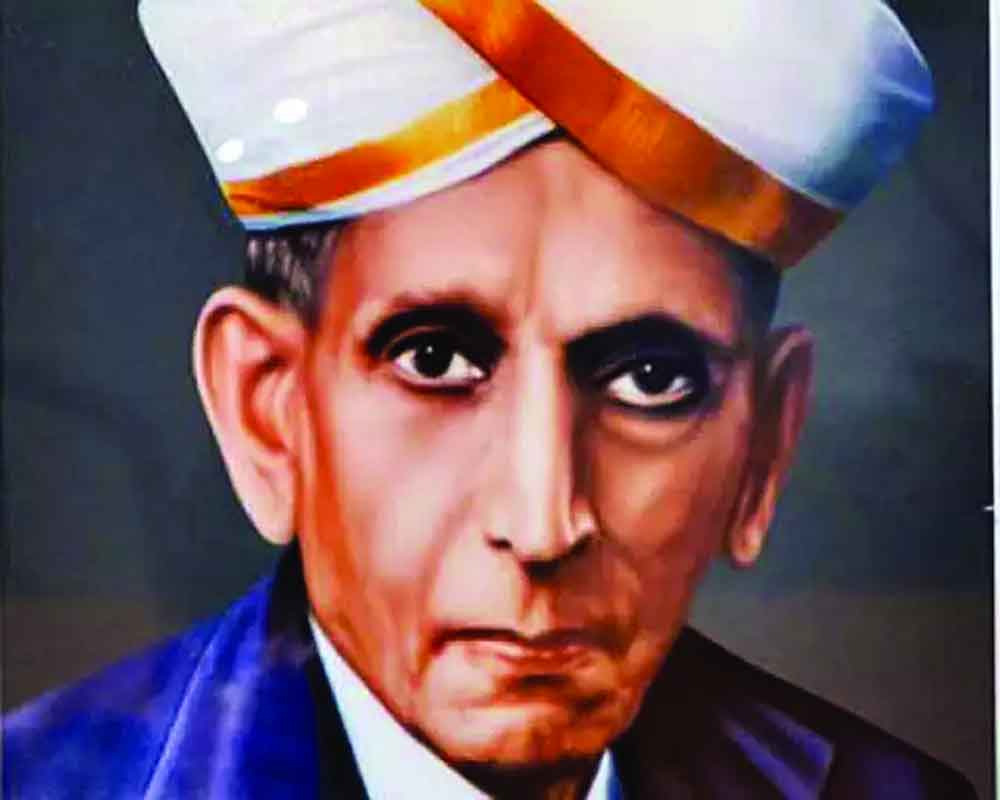People who possess a strong work ethic produce high-quality work consistently and that motivates them to stay on track
A work ethic is a set of moral principles we use in our jobs. It has been measured as a multidimensional variable composed of seven factors, including self-reliance, ethical behaviour, valuing leisure time, hard work, giving centrality to work, productive use of time, and delay of gratification." — Miller, M.J., Woehr, D.J., &Hudspeth, N. (2002).
The meaning and measurement of work ethic:Let me illustrate these seven factors with examples I have come to see or hear.
The first example that comes to mind is Sir M Visvesvarayawho personified a wonderful work ethic in engineering and public administration. A stickler for time and perfection, he would rebuke his engineers for,drawings, and notes that did not meet his standards. In the early 1900s, as the Dewan of Mysuru, he was on an official visit to Nanjangudwhere he was scheduled to attend a function at the local municipality. He arrived at 9 a.m. sharp, much to the chagrin of the organisers. By the time the officers gathered their wits around and got the function going, it was 9.30 am. After admonishing the officers, Sir MV promptly left at 10 am, midway through the function, so that he could keep his next engagement!
Another beacon of professionalism is Prof. Duncan Haldane, the Eugene Higgins professor of Physics at Princeton University,winner of the 2016 Nobel Prize. The award announcement was made at around 5 am EST. Haldane, who was teaching first-year undergraduate students 'Electromagnetism: Principles and Problem Solving' those days, turned up for his classfour hours later,sporting a light smile. Applause and cheers erupted. "Thank you," he said, lowering his head in slight bows as the clapping continued. A student asked,"Do you need to teach on this big day? Would you rather not celebrate, Prof. Haldane?" After a pause, Haldane replied, "Well, what can I say," eliciting a round of laughter from the students. "I guess we'll have to double down and learn some electromagnetism and see where it goes."
The next example goes to show that even the greatest personal tragedies cannot deter the committed from putting work first. Sahitya Akademi Award winner Devudu Narasimha Sastri was an eminent Kannada and Sanskrit scholar whowrote and spoke extensively on the philosophy of the Bhagavad Gita. In the 1950s, he was due to speakon Chapter 2 of the holy book at an event in Udupi. While he was speaking, someone handed him a telegram that containedthe death news of his eldest son. Without a pause, he finished his speech. It was only after he got down from the stage that his wife and friends who were in the audience received the tragic news. Sastri is reported to have saidChapter 2 is about being stoic and detached and how could my practice differ from precept".
Anil Kumble, too, showed stoicism when he bowled 14 overs with a broken jaw in the Antigua Test of 2002. He even claimed Brian Lara's wicket. On his way home to Bengaluru the next day for his surgery, he said,"At least I can go home with the thought I tried my best. I did not want to sit around."
Every example of a positive work ethic, however, doesn't make headlines. There are some that we grow up watching and admire deeply. MN Krishnaswamy, the headmaster of my school in Mysuru, personified all the seven factors that I started the piece with. Always on time, never to miss a class, the first to be in school and the last to leave, his exemplary work yielded phenomenal results for my alma mater.
A positive work ethic should not to be confused with being a workaholic. During my years with the British retailer Tesco,I found their executives valued their vacations and leisure, and this made them better at work.
There are also people who feign a positive work ethic, often staying late in the office to impress bosses. there is, however, a story about a foreign head of state getting annoyed during a factory visit in Japan becausenone of the workers lifted their heads to acknowledge his presence. When he asked them about it, one of them replied,"I am paid to do my work."
People who possess a strong work ethic produce high-quality work consistently. This motivates them to stay on track creating a virtuous loop that leads to self-respect, satisfaction, and fulfilment. Like a wise, much-respected director at Asian Paints once told me, "Work is its own reward!"
(The writer is Chief Communications Officer, Azim Premji Foundation. The views expressed are personal.)


























